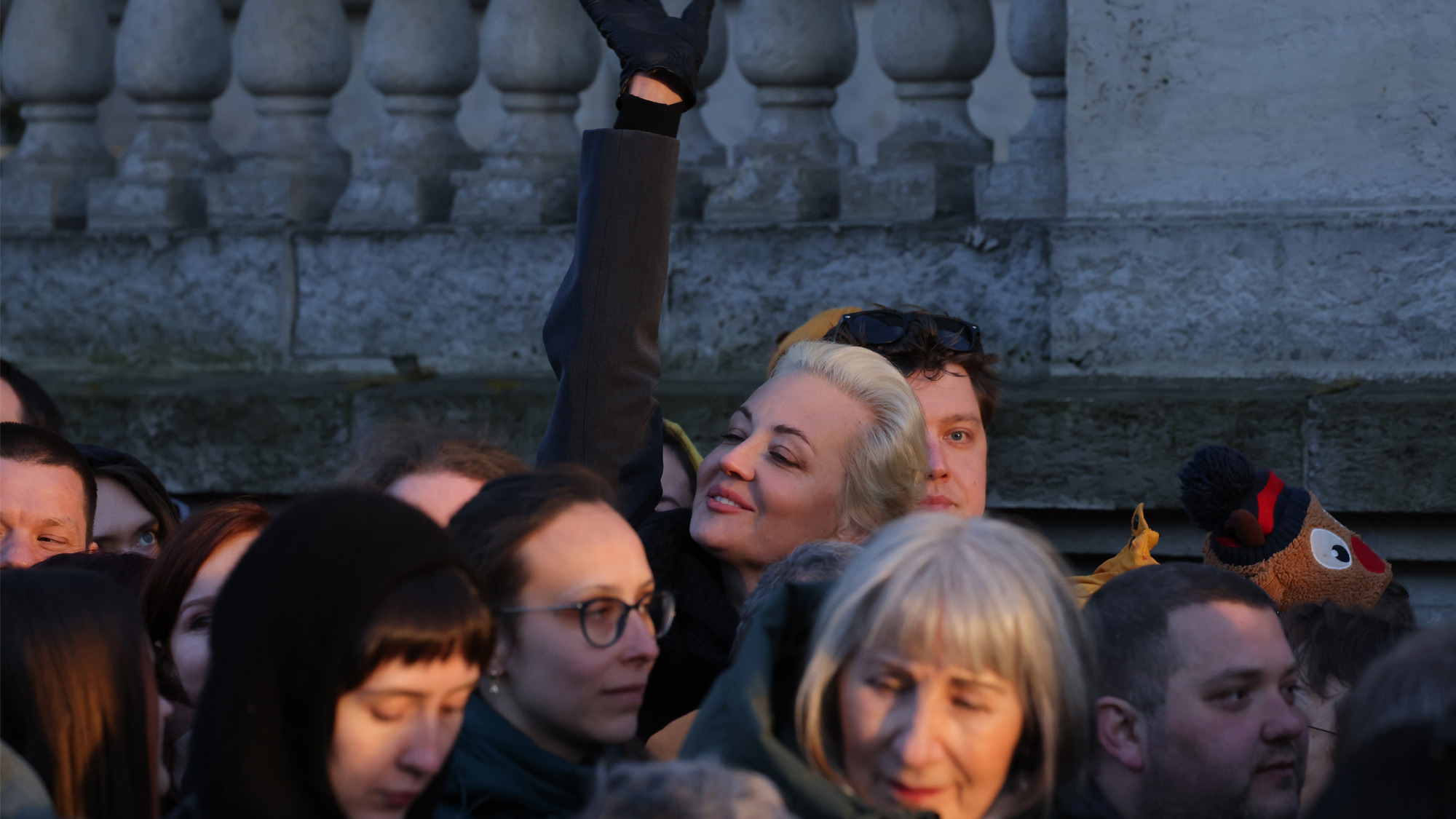Putin's sham election
Protest votes show Russian dissent still simmers

A free daily email with the biggest news stories of the day – and the best features from TheWeek.com
You are now subscribed
Your newsletter sign-up was successful
Ahead of Russia's farce of an election, state television aired a menacing get-out-the-vote commercial. A pregnant young woman stands in her modest kitchen, chopping vegetables and asking her husband about his day — did he remember to get groceries? Yes. Did he remember to vote? No, he shrugs, saying, "What difference does it make?" The ad suddenly shifts into horror-film mode, the lights flickering, the music ominous. The wife advances slowly toward him, brandishing her kitchen knife. She lists off all the wonderful things the Kremlin has promised for the future that they will lose if he doesn't vote — child payments, subsidized loans — and chases him out of the apartment. Off he runs to the polls, just in time. It's an entertaining spot, funny in the way of Russian black humor, but there's a subliminal message in it, too. Vote, or face violence.
Why would Vladimir Putin bother trying to motivate voters? The outcome here was a foregone conclusion, since the candidates ostensibly running against him were Kremlin-picked non-entities who didn't even campaign against him. But holding an election allows him to pretend that Russia is a democracy, that his people support him, that his rule is legitimate. This year, with the war in Ukraine dragging on and killing tens of thousands of Russian soldiers each month, the regime resorted to new measures to compel turnout, extending the balloting for three days and introducing electronic voting. Public-sector employees were ordered to bring others with them to the polls. Coerced into voting, Russia's beleaguered opposition managed to turn the act into a protest: They showed up, but all at the same time on the final day, a silent display of defiance. While such a protest does nothing to weaken Putin's repressive hold on Russia, it shows that there is a flicker of dissent that Putin hasn't been able to snuff out.
This is the editor's letter in the current issue of The Week magazine.
The Week
Escape your echo chamber. Get the facts behind the news, plus analysis from multiple perspectives.

Sign up for The Week's Free Newsletters
From our morning news briefing to a weekly Good News Newsletter, get the best of The Week delivered directly to your inbox.
From our morning news briefing to a weekly Good News Newsletter, get the best of The Week delivered directly to your inbox.
A free daily email with the biggest news stories of the day – and the best features from TheWeek.com
Susan Caskie is The Week's international editor and was a member of the team that launched The Week's U.S. print edition. She has worked for Radio Free Europe/Radio Liberty, Transitions magazine, and UN Wire, and reads a bunch of languages.
-
 What to know before filing your own taxes for the first time
What to know before filing your own taxes for the first timethe explainer Tackle this financial milestone with confidence
-
 The biggest box office flops of the 21st century
The biggest box office flops of the 21st centuryin depth Unnecessary remakes and turgid, expensive CGI-fests highlight this list of these most notorious box-office losers
-
 What are the best investments for beginners?
What are the best investments for beginners?The Explainer Stocks and ETFs and bonds, oh my
-
 Democrats push for ICE accountability
Democrats push for ICE accountabilityFeature U.S. citizens shot and violently detained by immigration agents testify at Capitol Hill hearing
-
 Fulton County: A dress rehearsal for election theft?
Fulton County: A dress rehearsal for election theft?Feature Director of National Intelligence Tulsi Gabbard is Trump's de facto ‘voter fraud’ czar
-
 ‘Melania’: A film about nothing
‘Melania’: A film about nothingFeature Not telling all
-
 Japan’s Takaichi cements power with snap election win
Japan’s Takaichi cements power with snap election winSpeed Read President Donald Trump congratulated the conservative prime minister
-
 Greenland: The lasting damage of Trump’s tantrum
Greenland: The lasting damage of Trump’s tantrumFeature His desire for Greenland has seemingly faded away
-
 Minneapolis: The power of a boy’s photo
Minneapolis: The power of a boy’s photoFeature An image of Liam Conejo Ramos being detained lit up social media
-
 The price of forgiveness
The price of forgivenessFeature Trump’s unprecedented use of pardons has turned clemency into a big business.
-
 Reforming the House of Lords
Reforming the House of LordsThe Explainer Keir Starmer’s government regards reform of the House of Lords as ‘long overdue and essential’